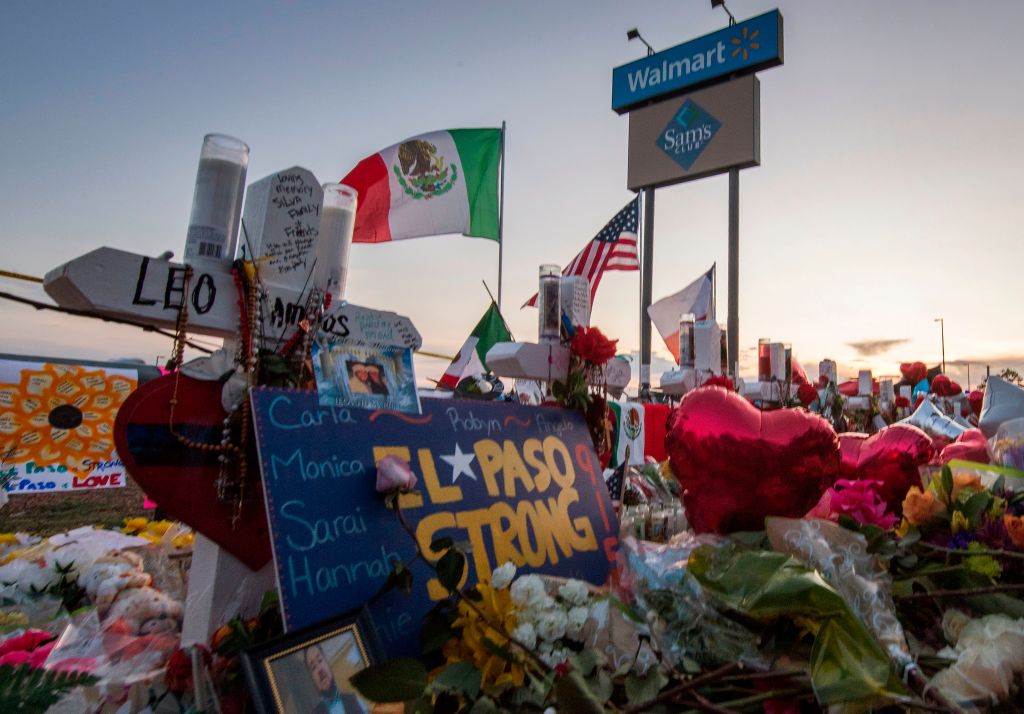Trump's visit to El Paso and Dayton will be overshadowed by Trump's own rhetoric


A free daily email with the biggest news stories of the day – and the best features from TheWeek.com
You are now subscribed
Your newsletter sign-up was successful
President Trump will visit Dayton, Ohio, and El Paso, Texas, on Wednesday to "grieve with them, pray with them, offer condolences" after back-to-back mass shootings that left 22 victims dead in El Paso and nine in Dayton, White House spokesman Hogan Gidley said Tuesday. Trump also wants "to have a conversation" about ways to head off future mass shootings, he added. "That's a tough assignment for a president who thrives on division and whose aides say he views discord and unease about cultural, economic, and demographic changes as key to his re-election," The Associated Press notes.
Officials in both cities are wary of Wednesday's visits. El Paso residents and lawmakers have asked Trump to stay away, saying his anti-immigrant and anti-Latino rhetoric contributed to the shootings, and Dayton Mayor Nan Whaley said Tuesday that while she will meet with Trump on Wednesday, she was disappointed with his short-lived calls for post-shooting unity Monday. "Everyone has it in their power to be a force to bring people together, and everybody has it in their power to be a force to bring people apart — that's up to the president of the United States," she said.
On Tuesday night, Trump tweeted that one of his El Paso critics, former Rep. Beto O'Rourke (D), "should respect the victims & law enforcement — & be quiet!" O'Rourke "is embarrassed by my last visit to the Great State of Texas, where I trounced him," Trump added, an apparent reference to their dueling El Paso rallies in February. And as CNN noted Tuesday night, Trump's rhetoric at that February rally seems unlikely to endear him to El Paso residents on Wednesday.
The Week
Escape your echo chamber. Get the facts behind the news, plus analysis from multiple perspectives.

Sign up for The Week's Free Newsletters
From our morning news briefing to a weekly Good News Newsletter, get the best of The Week delivered directly to your inbox.
From our morning news briefing to a weekly Good News Newsletter, get the best of The Week delivered directly to your inbox.
In a USA Today/Ipsos poll conducted Monday and Tuesday, 50 percent of respondents — including 23 percent of Republicans — said Trump bore some responsibility for the shootings, and 69 percent said racism and white nationalism was a contributing factor.
A free daily email with the biggest news stories of the day – and the best features from TheWeek.com
Peter has worked as a news and culture writer and editor at The Week since the site's launch in 2008. He covers politics, world affairs, religion and cultural currents. His journalism career began as a copy editor at a financial newswire and has included editorial positions at The New York Times Magazine, Facts on File, and Oregon State University.
-
 The problem with diagnosing profound autism
The problem with diagnosing profound autismThe Explainer Experts are reconsidering the idea of autism as a spectrum, which could impact diagnoses and policy making for the condition
-
 What are the best investments for beginners?
What are the best investments for beginners?The Explainer Stocks and ETFs and bonds, oh my
-
 What to know before filing your own taxes for the first time
What to know before filing your own taxes for the first timethe explainer Tackle this financial milestone with confidence
-
 Judge blocks Hegseth from punishing Kelly over video
Judge blocks Hegseth from punishing Kelly over videoSpeed Read Defense Secretary Pete Hegseth pushed for the senator to be demoted over a video in which he reminds military officials they should refuse illegal orders
-
 Trump’s EPA kills legal basis for federal climate policy
Trump’s EPA kills legal basis for federal climate policySpeed Read The government’s authority to regulate several planet-warming pollutants has been repealed
-
 House votes to end Trump’s Canada tariffs
House votes to end Trump’s Canada tariffsSpeed Read Six Republicans joined with Democrats to repeal the president’s tariffs
-
 Bondi, Democrats clash over Epstein in hearing
Bondi, Democrats clash over Epstein in hearingSpeed Read Attorney General Pam Bondi ignored survivors of convicted sex offender Jeffrey Epstein and demanded that Democrats apologize to Trump
-
 El Paso airspace closure tied to FAA-Pentagon standoff
El Paso airspace closure tied to FAA-Pentagon standoffSpeed Read The closure in the Texas border city stemmed from disagreements between the Federal Aviation Administration and Pentagon officials over drone-related tests
-
 Judge blocks Trump suit for Michigan voter rolls
Judge blocks Trump suit for Michigan voter rollsSpeed Read A Trump-appointed federal judge rejected the administration’s demand for voters’ personal data
-
 US to send 200 troops to Nigeria to train army
US to send 200 troops to Nigeria to train armySpeed Read Trump has accused the West African government of failing to protect Christians from terrorist attacks
-
 Grand jury rejects charging 6 Democrats for ‘orders’ video
Grand jury rejects charging 6 Democrats for ‘orders’ videoSpeed Read The jury refused to indict Democratic lawmakers for a video in which they urged military members to resist illegal orders
